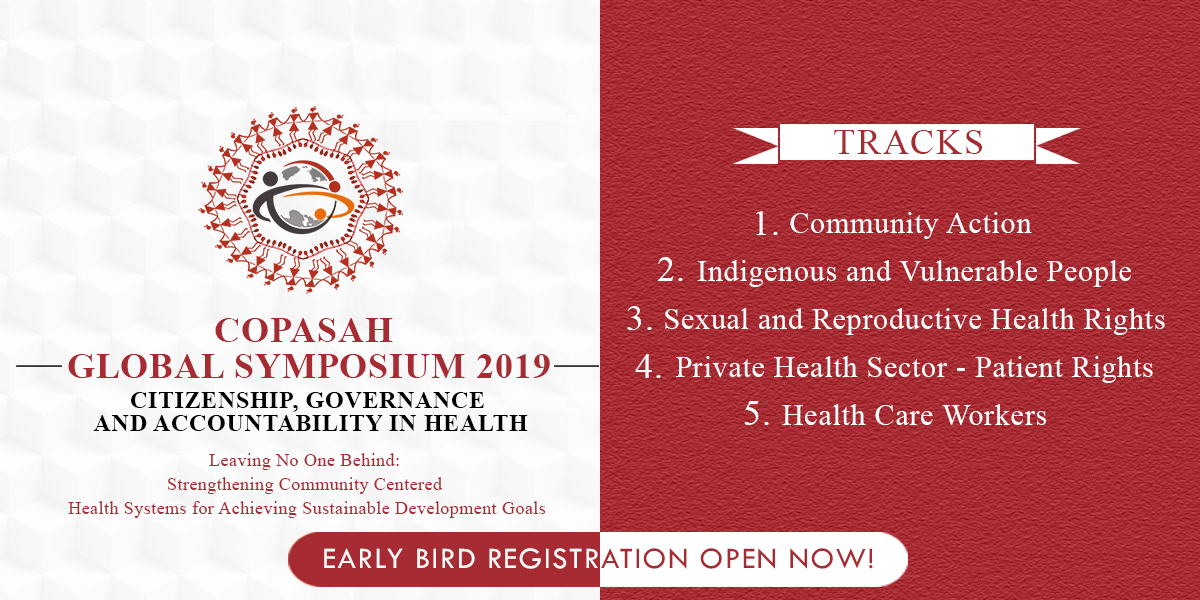
|
|
Advancing a Theory of Change (ToC): Potential of SDGs toTransform Contemporary Realities of Exclusion Towards Realisation of Universal Health Coverage/Care
E. Premdas Pinto, India
E. Premdas Pinto, India
Marginalised and disadvantaged communities, including indigenous and ethnic communities world over have poorer health outcomes and share similar experiences of exclusion in accessing health care. Based on COPASAH members’ experiences of working on social accountability processes to challenge power-inequities, a COPASAH organised session was held in the fifth Global Symposium on Health System Research (GSHSR) Liverpool, 2018which explored possibilities of advancing a Theory of Change (ToC) towards Universal Health Coverage/Care (UHC) for adoption by the health systems.
Social Accountability For Improved Access to Health Services for Roma Community
Borjan Pavlovski, Macedonia
Borjan Pavlovski, Macedonia
Association for Emancipation, Solidarity and Equality of Women (ESE), in partnership with local Roma Civil Society Organisations (CSOs) is engaged in social accountability work since 2011. It works towards improving health and access to health care for mothers and children among Roma communities in seven municipalities in Macedonia. In 2014, ESE also included Roma women’s access to preventive gynecological services. ESE’s work engages Roma communities across four municipalities in Macedonia.
Social Accountability leading to the enactment and the implementation of the National Health Act in Nigeria; the role of Civil Society Coalitions
Aminu Magashi Garba, Nigeria
Aminu Magashi Garba, Nigeria
In Nigeria, the Government’s commitments to Universal Health Coverage resulted in the passage of the National Health Bill and its signature into law in 2014. Throughout the development and adoption processes, civil society, professional bodies and media as well as the Health Sector Reform Coalition (HSRC) have been unceasingly advocating for the passage of the bill in to law.
Improving State Responsiveness to Accountability & Social Action in Health
Ariel Frisancho, Peru
Ariel Frisancho, Peru
An effort of citizen monitoring to promote accountability on health services quality and rights’ respect was carried out in the Puno region in Peru. Quechua and Aymara indigenous women community leaders engaged with ForoSalud, CARE Peru and regional office of the Human-Rights Ombudsman to monitor women’s health rights, particularly the right to good quality, appropriate and culturally respectful maternal health services.
Social Accountability for Adolescents’ Rights and Citizenship
Renu Khanna, India
Renu Khanna, India
Manisha is one of the 100 peer leaders nurtured by a collaborative project ‘Adolescents as Citizens and Change Agents for Social Accountability’ being implemented by SAHAJ and partners in four backward districts of Gujarat in western India. The goal of the project is to create a model of leadership and citizenship amongst adolescent girls and boys (11 to 18 years) based on a gender and rights perspective.
The COPASAH Global Symposium (CoPGS) on Citizenship, Governance and Accountability in Health is being organised by Community of Practitioners on Accountability and Social Action in Health (COPASAH). COPASAH is a global community of practitioners who came together in 2011 to learn and share from each other on community led practices around accountability and health governance. The COPGS 2019 aims to strengthen the solidarity within the community of practitioners, facilitate conversations between practitioners and other key actors like researchers and development agencies and overall stimulate learning which is driven from practice in the field.














